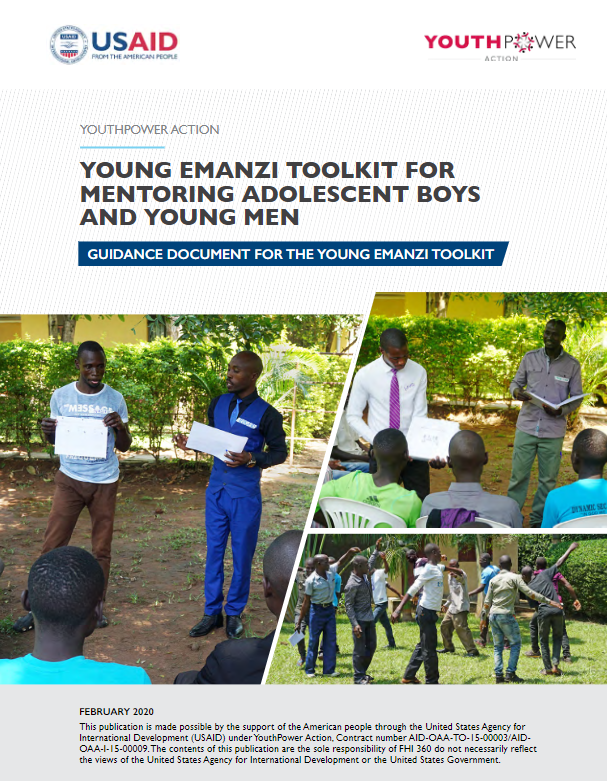
Young Emanzi Toolkit for Mentoring Adolescent Boys and Young Men
The Young Emanzi toolkit for mentoring adolescent boys and young men is a multicomponent intervention including group-based mentoring and curricula-based programming covering gender, soft skills, financial literacy, puberty and reproductive health, addiction and alcohol abuse, and violence prevention. The toolkit consists of a Guidance Document and three parts; Part I: Trainers’ Guide and Resources is for use by trainers to prepare mentors to implement the Young Emanzi program. Part II: Mentors’ Handbook contains detailed instructions for mentors about how to conduct the 16 Young Emanzi sessions and the community celebration, as well as handouts for mentees. The handbook is a resource for mentors to use when they are preparing to lead sessions with mentees. Part III: Mentors’ Flipbook contains illustrated pages for mentees and summarizes the instructions for conducting the 16 Young Emanzi sessions. Mentors will use the flipbook as a job aid when conducting sessions.
Organization/author: YouthPower Action
Year: 2020Language: English
 Know Know about FP/SRH by having factual knowledge about FP/SRH services and methods and harmful gender norms and expectations.
Know Know about FP/SRH by having factual knowledge about FP/SRH services and methods and harmful gender norms and expectations. Care Care about FP/SRH by assuming responsibility for their personal health and reproduction and accountability for supporting their partners’ reproductive priorities and needs.
Care Care about FP/SRH by assuming responsibility for their personal health and reproduction and accountability for supporting their partners’ reproductive priorities and needs. Do Do supportive actions for FP/SRH by taking concrete steps to communicate and help achieve reproductive intentions and goals from themselves and in support of their partners.
Do Do supportive actions for FP/SRH by taking concrete steps to communicate and help achieve reproductive intentions and goals from themselves and in support of their partners.

